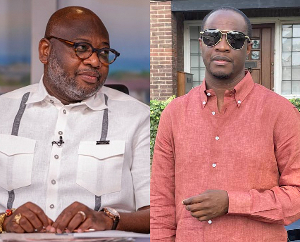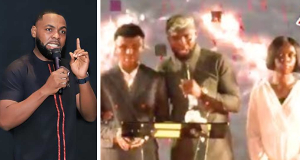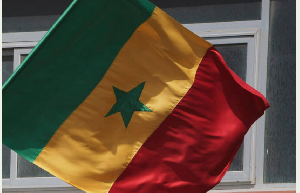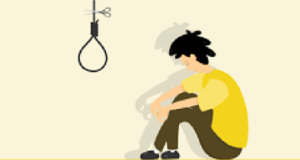If you grew up in Ghana before the 80s, you would know that there is only one Islam – the one that your fellow Ghanaian Muslims practise. You would not even know the name of that Islam because you knew that Islam was Islam and that was it. You knew that all Muslims went to the same mosque, observed the same religious holidays, prayed together in the same way and read (or rather memorised) the same holy book. It was so much unlike Christianity which has so many denominations including local ones and newer ones springing up everywhere. Not so Islam. Some of my Muslim classmates in elementary school, who didn’t know any better themselves, even used to boast of this – that there was only one Islam but so many Christianities.
This was what you knew – until you came to Europe. It took many of us to come to Europe to realise that Islam is as divided as Christianity and that there are, indeed, many Islams. Even some Ghanaian Muslims didn’t know this fact until they travelled out of Ghana. It was only from the 90s that one did not need to come to Europe before knowing that Islam is not a monolithic faith. The long-drawn out Iran-Iraq conflict (Muslim against Muslim) had ended, terrorism in the name of Islam was on the increase, the availability of more news avenues brought the nature of Islam to the fore and Ghanaian Christians began to know more about the faith.
Today, many Ghanaians know that their fellow citizens follow the Sunni variant of Islam. They know that this is the biggest worldwide. But they also know Islam has always been as divided as Christianity. Now we know of the Shia, Sufi, Alawiya, the Wahhabis of Saudi Arabia, the Drudes, Kharijite Islam, Nation of Islam, Muslim Brotherhood, Mawdahvism, Zikri, and a host of others. And we know that they have not all always lived peacefully together. History tells us that Muslims have also killed each other in the name of the brand of their faith as much as Christians have done.
But what is most of interest to me here are the differences in the practice of Islam by my fellow Ghanaians and the practice of the religion that I have come to see outside Ghana. Even Muslims belonging to the same variant of the religion differ in their practices. Take, for instance, the veil, commonly known in Ghana as mayasi. Ghanaian Muslim women may be marked by it but not in a way that raises eyebrows. Some Ghanaian women tie the veil over their waists rather than their heads. It doesn’t seem to be a big deal at all. Then you come to Europe and see Somali women completely wrapped in flowing gowns and you wonder if it is the Islam you knew from Ghana.
The Ramadan fast has also been seamlessly woven into the cultural fabric of Ghanaian Muslim life. Indeed, most non-Muslim Ghanaians may see the fast as a cultural, rather than, a spiritual practice. It is done for 29-30 days at the end of which there is a huge celebration marked by lots of food and merrymaking. I don’t know the etymology of the term used for the fast in Ghana by non-Muslims but it is very interesting. We call it “kyiriwia” or “akyirwia” (hate the sun) for the obvious reason that the fasting goes on from dawn until sunset, i.e. as long as the sun is up. The term may have some derogatory connotation but what it certainly does is to take away some of the spiritual element of the practice. And well it may. Most Ghanaian Muslims (indeed, most Muslims worldwide) do the fast because that is what they have always done and will continue to always do. It is an obligatory requirement of the faith. Anybody who doesn’t do it will mark himself out as a bad Muslim. This reason for doing can become more important than the spiritual benefits it is supposed to give. I have always wondered about the somewhat mechanical aspect of this spiritual practice. But then Islam, much more than Christianity, is a religion of rules (dos and don’ts). It imposes many prescriptions and restrictions on its followers.
One thing which Muslims in Ghana don’t have to worry about when it comes to fasting is whether, in a particular year, the fast will be difficult. The fast follows the Islamic calendar which is based on the lunar year. This means it can occur at different times of the solar year. In Ghana, the changes are minimal. But in Europe, they can be huge. If the fast occurs during the longer European summer daylights, you will have to go hungry longer. This is not easy. The thought that this may balance out in another year when the fast occurs in the autumn and the sun doesn’t linger long to bring the darkness that tells you to start eating will not comfort you. Of course, European Islam makes human adjustments to compensate for this spiritual requirement.
Another problem faced by the Ghanaian Muslim in Europe is the temptation to eat pork in an environment where it is the basic source of protein and can be found in so many sausages and some candies. Closely connected with this is halal meat. In Ghana, most butchers are Muslims. Nobody really cares about how Papa Butcher slaughters his animals. But in Europe, animals are killed in a way that may not obey the rules set down 1400 years ago in Islam. Besides, animal rights advocates point out that halal killing is inhumane. There is an interesting point here because Muslims will tell you that halal also means that the animal should be humanely taken care of when it is being raised but the manner of halal killing, itself, is no longer regarded by many as humane.
Ghanaian Muslims who come to Europe as adults may have learnt the Quran at home at Makaranta. But there are no such schools in Europe. The mosques in Europe may organise Quranic studies but it is not quite like Makaranta in Ghana. People may not even look kindly on learning things by rote especially in a language which you don’t even understand. Besides, the Muslim kid in Europe can refuse to take lessons in the Quran and the parent can hardly do a thing about that. The Ghanaian Muslim parent has to cope with such things as well as with a few problems in the public schools like group swimming lessons organised for kids of both sexes and lessons in evolution that teach you Allah did not, after all, create the world and He may not be waiting around the corner to punish or reward you on Judgment Day.
Often, when you attend Ghanaian funerals and parties abroad, you will be confronted with certain interactions with your Muslim countrymen which may be differently resolved at home. You will observe the Muslim wives keeping to themselves and never taking part in the dancing. Some awkward moments arise when you greet these families at parties and you observe the Muslim wife will not shake hands with you because you are not the husband. As for a hug in greetings the European way, forget it. Funerals held for parents who passed away in Ghana are common in Europe. You are expected to attend and make a contribution. The Islamic equivalent (adua) is different. It involves readings from the Quran which may be strange to you. Even here too, you will notice a tendency for the women to keep to themselves throughout the ceremony.
At least one thing is relatively easier for the Ghanaian Muslim in Europe – going on the haj. He can afford it and will not have to wait for government quotas, endure foreign exchange restrictions and overnight waits at Kotoka International Airport. There are packaged flights from Europe and cheap loans to finance the trip. The only disadvantage is that when they come back nobody here will call them Alhaji or Al Haja – a title that Arab Muslims do not use when they do the pilgrimage and is used in Ghana because of our penchant for titles.
Europe has also afforded us the possibility to meet Muslims who are not Ghanaians. Indeed, most of the Muslims you will meet and work closely with will not be your fellow Ghanaians but Arabs from Africa and the Middle East as well as Iranians, Turks, Pakistani, Bangladeshi and Afghanis. The copy of the English “Translations of the meanings and commentary of the Holy Quran” that I have was given to me by my Algerian colleague who bade me to be respectful of it and not to, for instance, place it next to a book on pornography on my bookshelf and also to wash my hands if I want to touch it directly after a visit to the toilet. Out of respect to him I have obeyed. Incidentally, as I was writing this, I looked on my shelf at the Holy Book (which I hadn’t touched for some time) and realised it was lying next to a hard copy of Salman Rushdie’s Satanic Verses that I had bought from a flea shop. I am not sure if it is right but both books are of the same size which is the only reason they are lying next to each other.
Even as we meet Muslims from other countries in Europe, we are still careful of one thing we have known from Ghana: Muslims do not take kindly to arguments and discussions that question their faith. They become aggressive. But there are many well educated moderate Ghanaian Muslims in Europe and the Americas who can tolerate an argument. The anonymity of the internet (ghanaweb?) has also afforded heated discussions about the religion without any fears.
There are many new developments on the Muslim front in Ghana. That Ghanaians are becoming ever more religious has been noticed in the proliferation of new Christian churches especially of the Pentecostal type. What is not often mentioned is the increasing numbers of mosques all over Ghana. Some of these are new, shiny and glistering structures people will tell you were built with money from rich Gulf States trying to spread the faith. Another thing you will notice is that mosques in the towns and villages are no longer confined to the Zongo areas that used to be at the edge of town. The population explosion that our country is witnessing means that edge of the town zongos have long been subsumed into the towns as new settlements have been built beyond the zongos. People of the faith are no longer confining themselves to the zongo areas. This means mosques can now be seen in all parts of town even in traditionally Christian areas. There are more and more people from ethnic groups not traditionally known to be Muslims who have now joined the faith. The Asante/Fante/Ga kramo have now been joined by their counterparts who are Ewe or Nzema. Then there are the Islamic religious holidays that are national events. Ghanaian Muslims fought for it and Christian and animist Ghanaians can also enjoy the Muslim holiday off from work.
Noticing these differences makes you consider the real import of the religion. Islam is very much grounded on Arabic culture even though the practitioners claim it is the ultimate religion of all mankind. The messenger of Allah was an Arab and Allah chose the messenger’s language as His and talked to him in the language that he (the messenger) understood. The companions of the prophet and early Muslims were all Arabs who took Arabic culture as their point of departure in establishing Islamic practices. So what are we, in Africa, doing with this very Arabic cultural practice? I have met some Iraqi Muslims in Europe who have wondered how Africans can practise Islam since the religion is so Arabic centred and they do not understand the language.
One thing most of us have taken for granted in Ghana is the peaceful coexistence between Christians and Muslims. The zongos had a concentration of Muslims but this did not prevent interaction among the inhabitants of the towns. Economic activity, especially, made sure that there was close interaction between Christians and Muslims. Muslims specialized in selling certain things which Christians wanted. Give me some hot Hausa koko and koose in the morning and I will have no problems with the rest of the day… But what brought the greatest interaction between the two were the schools that we all attended. Of course Muslims, when they could help it, avoided the mission schools and attended the Local Authority Schools. But they never hesitated in attending good Christian mission secondary schools. Since we were all kids not spoiled by any religious hatred, we easily made friends across religious lines. Ok, it was not easy for a Christian guy to get a Muslim girlfriend but we all got along. This age old peaceful coexistence convinces many people that Boko Haram cannot happen in Ghana. But this can be debated.
There are some Europeans who mistakenly think most Africans are Muslim until you tell them it is not so. And when they ask you what the percentage of Muslims in Ghana is, you will realise that you don’t quite know. Then it will occur to you that when such a question is asked a Ghanaian Christian, he will say something like 10 per cent. A similar question to a Ghanaian Muslim is likely to elicit an answer that puts it around 30 per cent. Each side overestimates its own numbers while official figures are untrustworthy.
When I compare the way Islam is practised in Ghana with what I have come to know of its practices elsewhere, I can’t help but conclude that what we have in Ghana is Islam Lite. This moderate nature of Islam in Ghana allows the Ghanaian Muslim to easily adjust to life in a Christian Europe. He may easily shift the line between what is halal and what is haram. You are not likely to meet a Ghanaian Muslim extremist. Most are not bothered about not having to wear the jalabiat here or sporting a Muslim type beard or carrying the Muslim rosary in full view of everybody on the train. The women keep the mayasi at home when they go to work. And well they may. After all, both Islam and Christianity are practices that were developed elsewhere and forced on us. Many of us practise a religion only because we were born by parents who also practise it and thought it would be good for us. We continue it mainly as a matter of habit and not because of any independently arrived at adult conviction of the truth of the religion.
I wish all my Ghanaian Muslim brothers and sisters in Europe and North America a very successful Ramadan month of fasting and, Insha Allah, an enjoyable Id El Fitr celebration.
Kofi Amenyo (kofi.amenyo@yahoo.com)
Opinions of Wednesday, 16 July 2014
Columnist: Amenyo, Kofi














